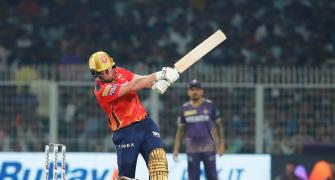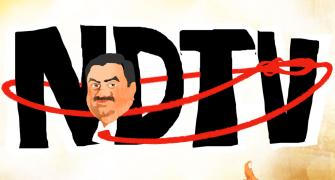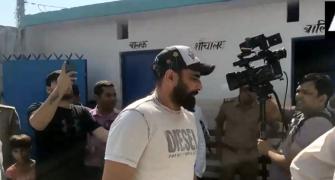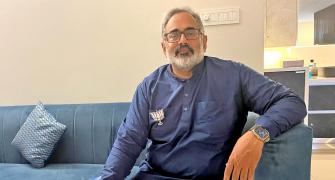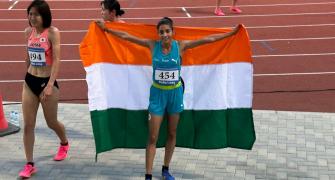Indian Prime Minister Narendra Modi on Saturday addressed the UN General Assembly. Modi's 35-minute address covered a number of subjects such as terrorism, including its resurgence in West Asia, reforms of the United Nations, including the Security Council, and the need for a more inclusive global development.

Rebuffing Pakistan for raising the Kashmir issue at the UN, Prime Minister Narendra Modi asserted on Saturday that he was prepared to engage in a serious bilateral dialogue with it "without the shadow of terrorism" but asked it to create an "appropriate environment" for that.

Without making a direct reference to the strident speech of his Pakistani counterpart Nawaz Sharif on Friday in which he had insisted on a plebiscite in Kashmir, Modi made it clear that "raising issues in this forum is not the way to make progress towards resolving issues between our two countries".

In his maiden address to the 193-member UN General Assembly, the Indian leader underlined that his government placed the highest priority on advancing friendship and cooperation with its neighbours, including Pakistan.
Speaking in Hindi, Modi said, "I am prepared to engage in a serious bilateral dialogue with Pakistan in a peaceful atmosphere, without the shadow of terrorism, to promote our friendship and cooperation.
"However, Pakistan must also take its responsibility seriously to create an appropriate environment," he told the Assembly.
Modi's 35-minute address covered a number of subjects such as terrorism, including its resurgence in West Asia, reforms of the United Nations, including the Security Council, and the need for a more inclusive global development.
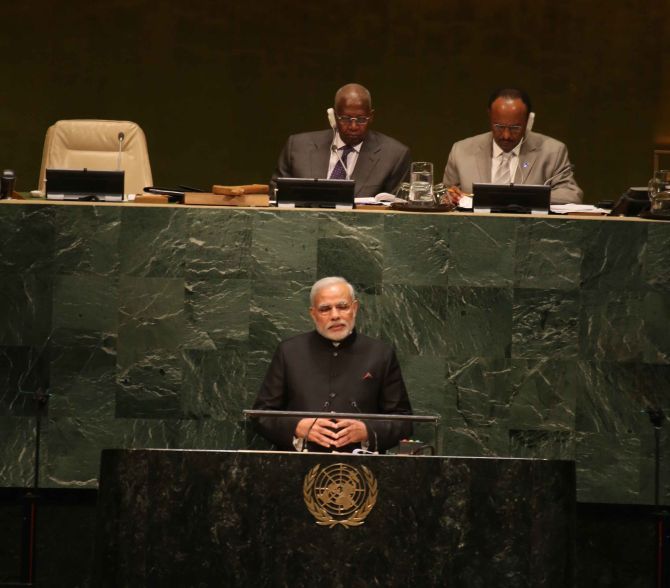
Talking about India's neighbourhood, the Prime Minister said that India desired a peaceful and stable environment for its development. "A nation's destiny is linked to its neighbourhood. That is why my government has placed the highest priority on advancing friendship and cooperation with her neighbours."
He told Pakistan that instead of raising issues at the UN, "today we should be thinking about the victims of floods in Jammu and Kashmir. In India, we have organised massive flood relief operations and have also offered assistance for Pakistan-occupied Kashmir".
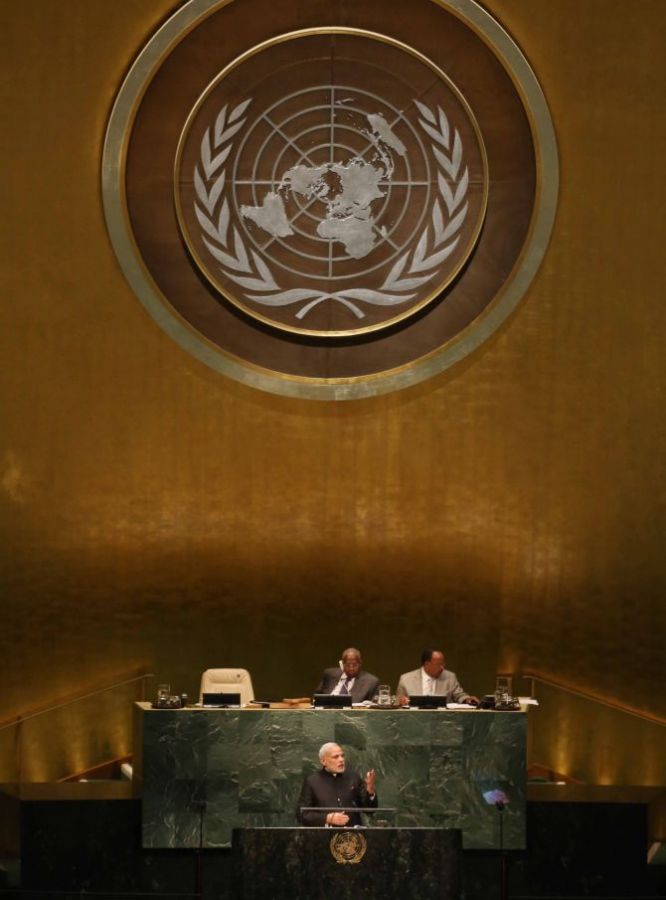
Modi told the General Assembly that terrorism was taking "new shape and new name" and no country, big or small was free from its threat.
He went on to ask, "are we really making concerted international efforts to fight these forces, or are we still hobbled by our politics, our division, our discrimination between two countries, distinction between good and bad terrorists?"
Without naming Pakistan, the prime minister said even today "states allow terrorist sanctuaries on their territory or use terrorism as instruments of their policy".
In an apparent reference to the ongoing conflict in Iraq and Syria, where a US-led coalition is attacking the Islamic State (IS) militants, he said that India welcomed efforts to combat terrorism's resurgence in West Asia which was affecting countries near and far.

He pointedly emphasised, "this effort should involve the support of all countries in the region".
Pressing for a concerted international effort to combat terrorism and extremism, the Indian leader urged the world body to adopt the Comprehensive Convention on International Terrorism.
Calling for reform of the United Nations, including the Security Council, whose membership India is aspiring for, Modi said the world body should be more democratic and participative.
"Institutions that reflect the imperatives of the 20th century won't be effective in the 21st. It would face the risk of irrelevance and we will face the risk of continuing turbulence with no one capable of addressing it," he said.


